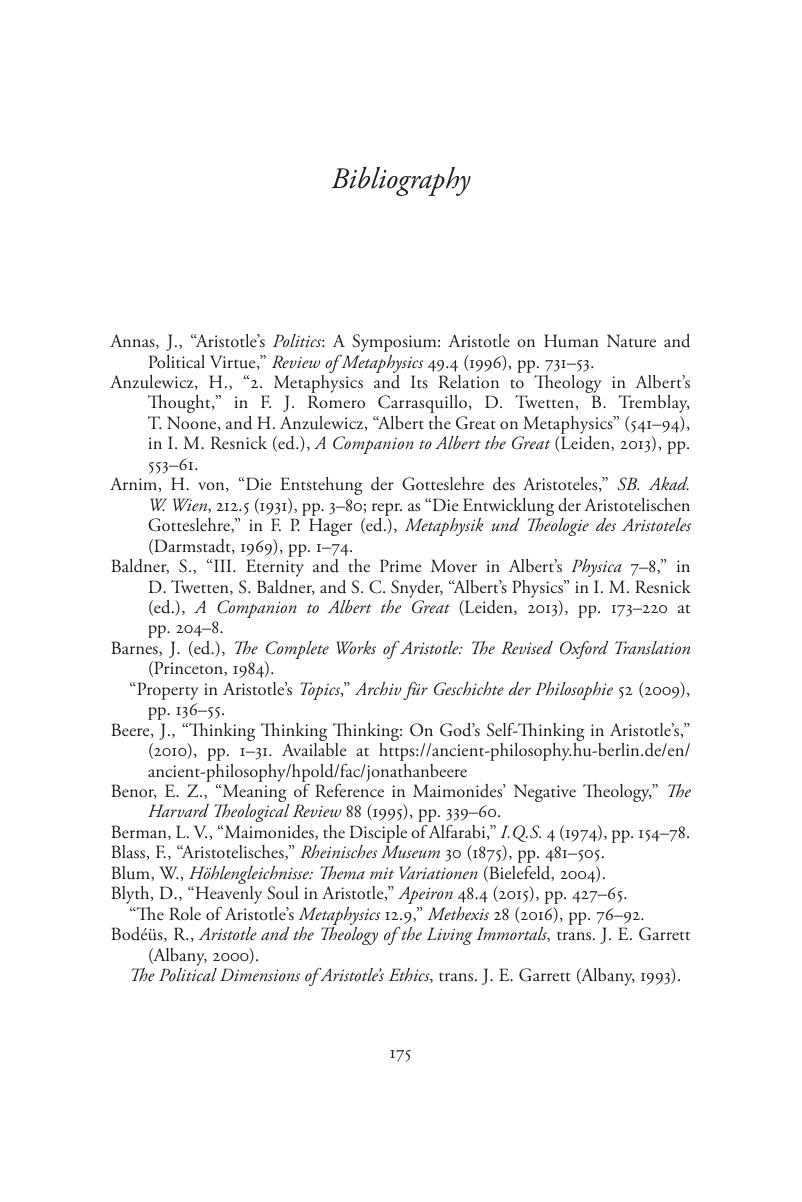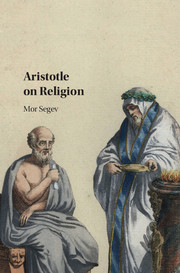Book contents
- Aristotle on Religion
- Aristotle on Religion
- Copyright page
- Contents
- Figures and Tables
- Acknowledgments
- Introduction
- 1 Aristotle’s Rejection of the Content of Traditional Religion
- 2 Traditional Religion and Its Natural Function in Aristotle
- 3 Humans, ‘Eternal Humans’ and Gods: The Usefulness of Traditional Gods for the Imitation of the Divine
- 4 Aristotle on the Possible Uses of the Myths of “The Ancients”
- 5 The Influence of Aristotle’s View of Religion on Medieval Jewish and Christian Thought
- 6 Conclusion
- Bibliography
- Index Locorum
- General Index
- References
Bibliography
Published online by Cambridge University Press: 26 October 2017
- Aristotle on Religion
- Aristotle on Religion
- Copyright page
- Contents
- Figures and Tables
- Acknowledgments
- Introduction
- 1 Aristotle’s Rejection of the Content of Traditional Religion
- 2 Traditional Religion and Its Natural Function in Aristotle
- 3 Humans, ‘Eternal Humans’ and Gods: The Usefulness of Traditional Gods for the Imitation of the Divine
- 4 Aristotle on the Possible Uses of the Myths of “The Ancients”
- 5 The Influence of Aristotle’s View of Religion on Medieval Jewish and Christian Thought
- 6 Conclusion
- Bibliography
- Index Locorum
- General Index
- References
Summary

- Type
- Chapter
- Information
- Aristotle on Religion , pp. 167 - 174Publisher: Cambridge University PressPrint publication year: 2017



